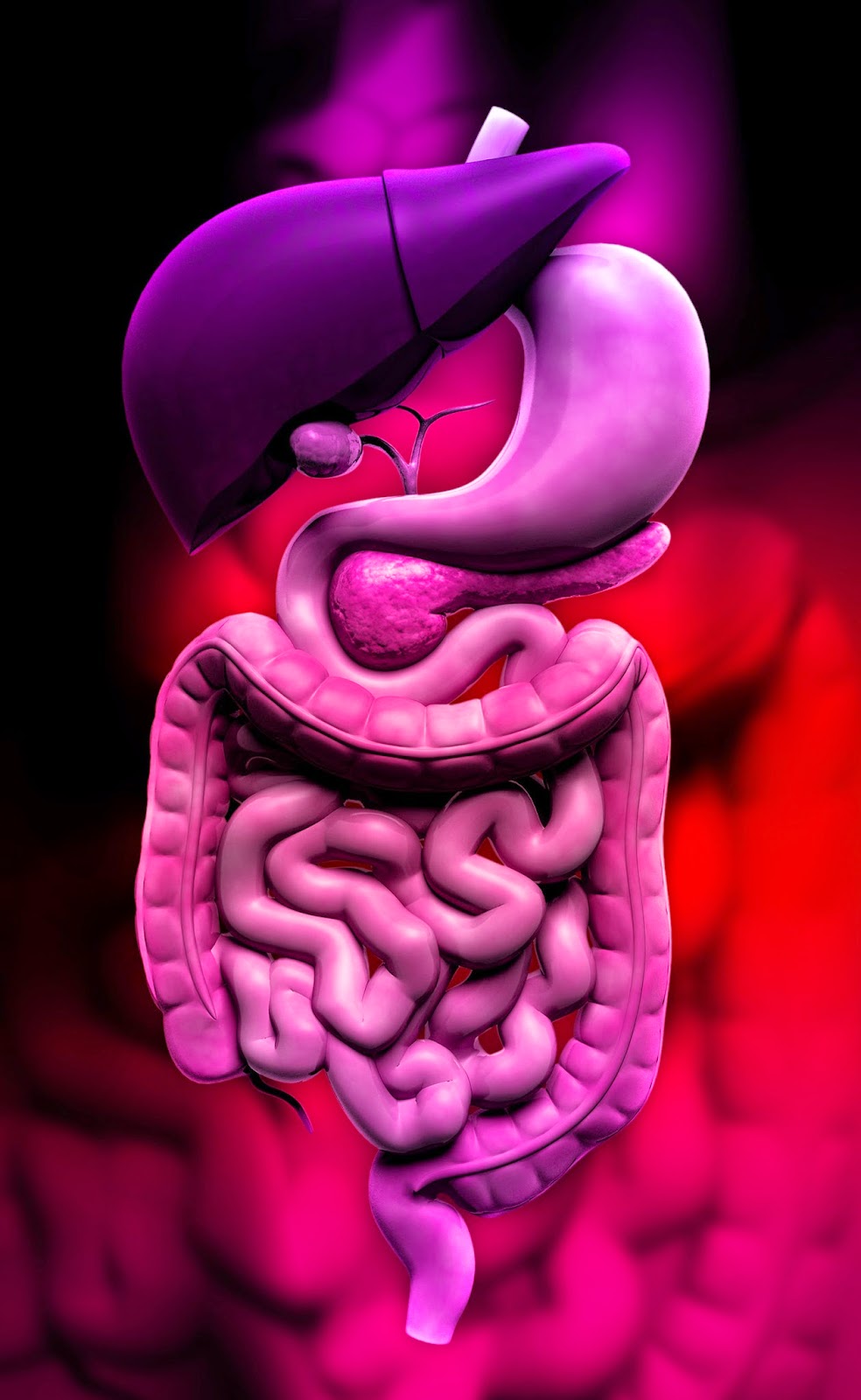 |
PART TWO – THE
THREE MAIN FUNCTIONS OF YOUR LIVER
1.
It digests stuff
2.
It produces
proteins
3.
It gets rid
of stuff
Digestion Process
First of all, digestion is the process of breaking down
foods and beverages into tiny particles your body can use for energy and to
build and nourish your cells. There are
6 primary processes of your digestive system.
1.
Ingestion of
food/beverage
2.
Secretion of
fluids and digestive enzymes
3.
Mixing and
movement of food and wastes through the body
4.
Digestion of
food into smaller pieces
5.
Absorption
of nutrients
6.
Excretion of
wastes
The Liver’s Job
The digestive process happens in the mouth, esophagus,
stomach, intestines then the liver, gallbladder and pancreas. The main function of the liver in the
digestive process is the production of bile and it’s secretion into the small
intestine. The liver is where
everything gets inspected and classified as either helpful or harmful. The nutrients are then transformed into a
different biochemical form either targeted for absorption or waste.
Liver cells convert cholesterol into bile acids. These then mix with more cholesterol, other
lipids, electrolytes, water and the waste produced from the breakdown of old
red blood cells (bilirubin). The liver
secretes the bile through the bile ducts to your gallbladder. The gallbladder is sort of a holding tank
keeping the excess bile until the partially digested food from your next meals
enters your small intestine.
Bile acids are unique because they can mix with fats and mix
with water‐this makes them a lipid. As
the bile enters the small intestine, it mixes with the fat particles in the
partially digested food. It breaks apart
the large fat globules into tiny fat droplets that float in the watery
intestine contents. The way bile acts on fat is very similar to how detergent
breaks apart grease. Enzymes produced in
the pancreas and small intestines can then digest the tiny fat droplets into
fatty acids your body can use. So, once
the food has been reduced to its building blocks and the good stuff has been
separated from the harmful stuff, it is ready for the body to absorb.
What Does That All Mean to Morgan?
If you go out and celebrate or, just stay home and drink all
night, I will be working continuous overtime trying to get rid of all that
alcohol. I’m the only organ in charge of
processing alcohol and detoxifying the blood.
Breaking down your alcohol is only one of more than 500 vital functions I
perform. I don’t really have a lot of
time to do this. This means that I can
only handle so much alcohol at once – I’M BUSY!!!! If you overload me, the excess alcohol will
end up circulating in your bloodstream affecting your brain, heart and other
tissue. The consequences of this is the
destruction of my cells, build-up of fat deposits which clogs the flow of blood
(remember I’m mostly airy space). This
could all result in fatty liver or, even more serious, inflammation (alcoholic
hepatitis) and permanent scarring (cirrhosis) and God forbid, liver
cancer! All I’m trying to say here is to
drink responsibly and love your liver (me).




